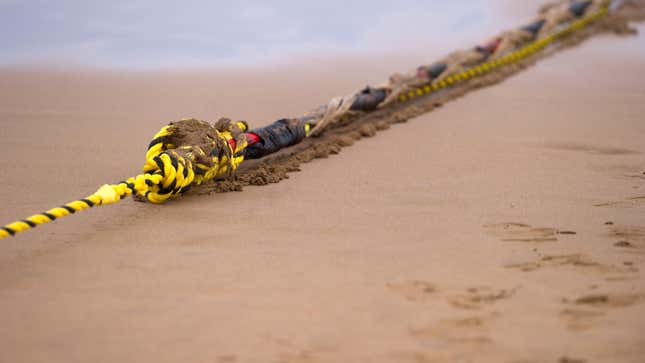
On Monday, Facebook announced it was partnering with Africa’s largest fiber company, Liquid Intelligent Technologies, to build an “extensive” fiber network that’s over 2,000 kilometers (or 1,243 miles) long. Per Liquid, this network is one of the most “extensive,” and “difficult” builds that the company’s undertaken, and will require the work of at least 5,000 people from local communities to create the network that will—in the end—span from the Atlantic Ocean through the Democratic Republic of Congo.
“We know that deploying fibre in this region is not easy, but it is a crucial part of extending broadband access to under-connected areas,” said Ibrahima Ba, who directs Network Investments in Facebook’s Emerging Markets division. “We look forward to seeing how our fibre build will help increase the availability and improve the affordability of high-quality internet in DRC.”
Facebook first began vying to corner the African market back in 2016, when it started rolling out its Free Basics initiative to dozens of companies in Africa. While early proponents applauded the company’s seemingly philanthropic attempts to bring the staggering number of disconnected citizens online, that POV lost favor pretty quickly when people saw how Facebook treated its... other “emerging markets.”
The company still hasn’t released data about its role in inciting genocide in Myanmar, for example, and it teetered dangerously close to encouraging another genocide in Ethiopia last year. In the latter case, misinformation about a popular singer’s politically charged murder set off a near-instant misinformation campaign about the deceased singer that left people’s homes burned and destroyed and 86 Ethiopian citizens dead in the rampage.
We’ve also seen Facebook’s hands-off approach wreak havoc in Senegal, where advocates say the company has failed to police violent homophobic hate speech for years. After misinformation and rumors surrounding the imprisonment of ex-presidential candidate Ousmane Sonko sparked bloody protests across the region earlier this year, Senegal authorities cut off access to the internet entirely rather than keep its citizens connected via Facebook and WhatsApp. And just like in the rest of the world Facebook has become a key source for COVID-19 misinformation across Africa—including in the Congo, where these new cables are set to be laid.
Despite quietly ending Free Basics in Myanmar back in 2017, Facebook has kept on charging ahead with its plans to connect Africa. Last year, the company put out a blog post describing 2Africa—a massive spiderweb of undersea cables meant to “interconnect 23 countries in Africa, the Middle East, and Europe.” Per Liquid’s press release, its own network will also hook up and expand 2Africa’s reach.
“Like all of our investments, 2Africa is being completed as part of our efforts toward an open and inclusive internet ecosystem, which is a vital part of the continent’s digital economic growth,” Facebook wrote. “This expanded capacity will facilitate a healthy internet ecosystem by enabling greatly improved accessibility for people and businesses alike.”
In other words, the company is yet again using small businesses as an excuse to plow ahead with—well, whatever it wants, really. As always, it looks like the company will keep following those dollar signs and ignore the blood and viscera its products keep on digging up.